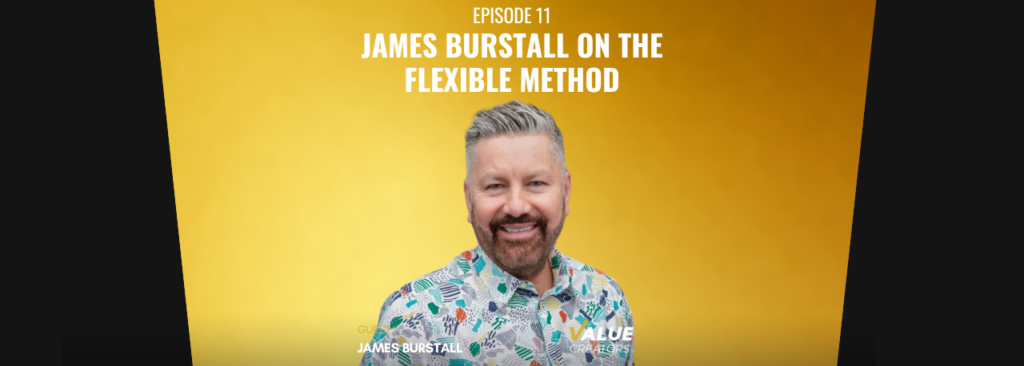Episode #11. James Burstall On The Flexible Method

There’s a considerable debate among consultants and academics regarding the definition of management: what is it? Is it a science, is it a process, is it a set of tools that business schools teach us how to use?
In this episode, James Burstall comes on to explain his perspective on management as a mindset (the interacting mindsets of many different people in many different circumstances in fact) as proposed in his new book titled The Flexible Method: Prepare To Prosper In the Next Global Crisis.
Resources:
James Burstall’s Production Group – Argonon
James Burstall’s Book: The Flexible Method: Prepare To Prosper In The Next Global Crisis
Knowledge Capsule:
- Introduction to the Flexible Method:
- “Flexible Method” is an approach tailored to managing uncertainties in business.
- Central components include adaptability and radical determination, combined to form a powerful decision-making framework.
- This method encourages an open-minded approach to research, teamwork, and resolute action for decision-making.
Action: Elevate responsiveness to change over planning.
- Radical Determination and Decision-Making:
- Making and committing to decisions is crucial in the Flexible Method.
- Teams need to reach a consensus and show unwavering determination.
- Tough decisions are embraced and executed with full resolve.
Action: Don’t just make decisions, commit to them, and get team commitment.
- Adaptiveness and Scanning for Opportunities:
- Radical determination is about executing decisions; adaptiveness involves identifying opportunities.
- Scanning the horizon for changing circumstances is vital.
- A case from the credit crunch illustrates the need to be open to new avenues.
Action: Where possible, anticipate change in the form of an opportunity space.
- Cash Flow as a Critical Metric:
- Cash flow is the most critical business health metric, needing respect and management.
- Managing finances during crises involves making tough decisions.
- Strategies to retain relationships and sustain the business are discussed.
Action: Measure your business’s health with cash flow and cash availability.
- Entrepreneurial Mindset and Restlessness:
- Organizations in crisis operate like startups.
- Restlessness is essential for fostering an entrepreneurial mindset.
- Embracing change, creativity, and innovation is emphasized.
Action: All business is entrepreneurial, not managerial.
- Leadership, Care for People, and Reflection:
- Leadership involves emotional intelligence, authenticity, and prioritizing people.
- Values like diversity, inclusion, and environmental responsibility are retained.
- Gratitude, rewards, and reflection play a role in the Flexible Method.
Action: Caring brings resilience to business.


Responses